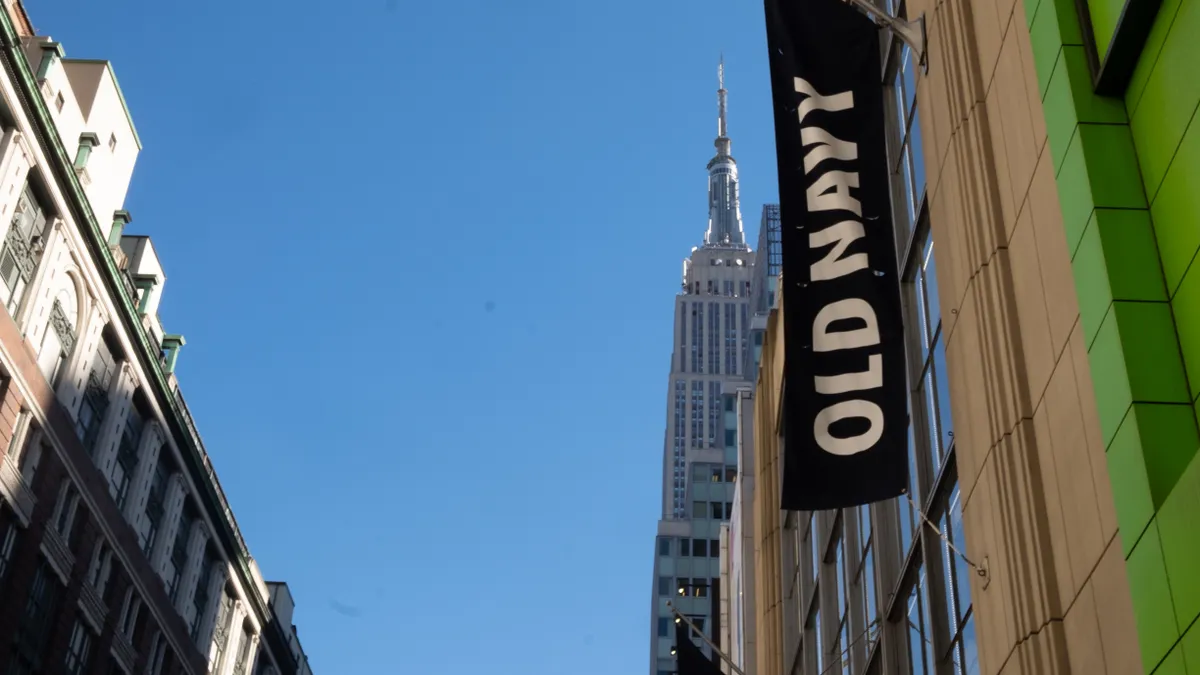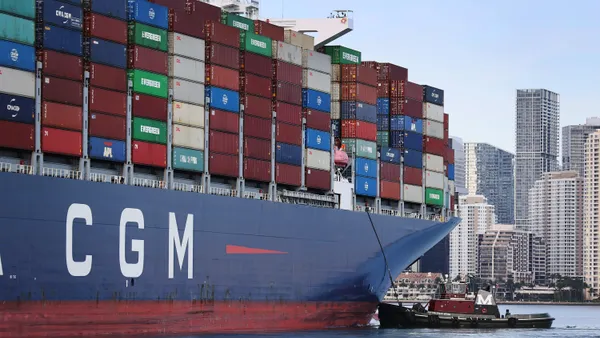Dive Brief:
- Gap Inc. will accelerate nearshoring efforts after port congestion and factory closures in Vietnam pushed up transportation costs, CEO Sonia Syngal said on an earnings call last Thursday.
- The apparel retailer, which also owns Old Navy and Banana Republic, will increasingly source from Mexico and Central America this year to cut down on lead times.
- The move comes after Gap saw delays of up to 10 weeks in seasonal products due to pandemic-related factory shutdowns in Vietnam.
Dive Insight:
Roughly a third of the Gap's products come out of factories in Vietnam, according to its filings. To meet demand, the company had to shell out hundreds of millions of dollars to ship product by air and avoid lengthy, highly congested ocean routes.
For Q4 alone, Gap spent $275 million on air freight. For the year the figure was $430 million.
"We are working on de-risking our supply chain by rebalancing our sourcing to rely less on single countries of origin and building deeper relationships with near-shore vendors," said Syngal.
Gap has accelerated booking deadlines for its spring product and booked summer product even earlier, while factoring in extended transit times to add a buffer. It's also diversifying its port exposure, moving "the vast majority" of products through Eastern and Southern ports to dodge delays on the West Coast.
The retailer is also leaning on technology to speed up development times. Gap is accelerating adoption of a digital product design at Old Navy, allowing the company to "innovate more rapidly with suppliers and significantly reduce product design and development time lines," according to Syngal.
By using digital product designs, Old Navy saw a 40% reduction in total development time in fall 2022 compared to the year before.
"We've made a lot of investments," CFO Katrina O'Connell said on the call. "Now it's time to really start getting leverage off of those investments and then begin to really lean into how do we pull out more cost in the business through digital capabilities and new ways of working."
















